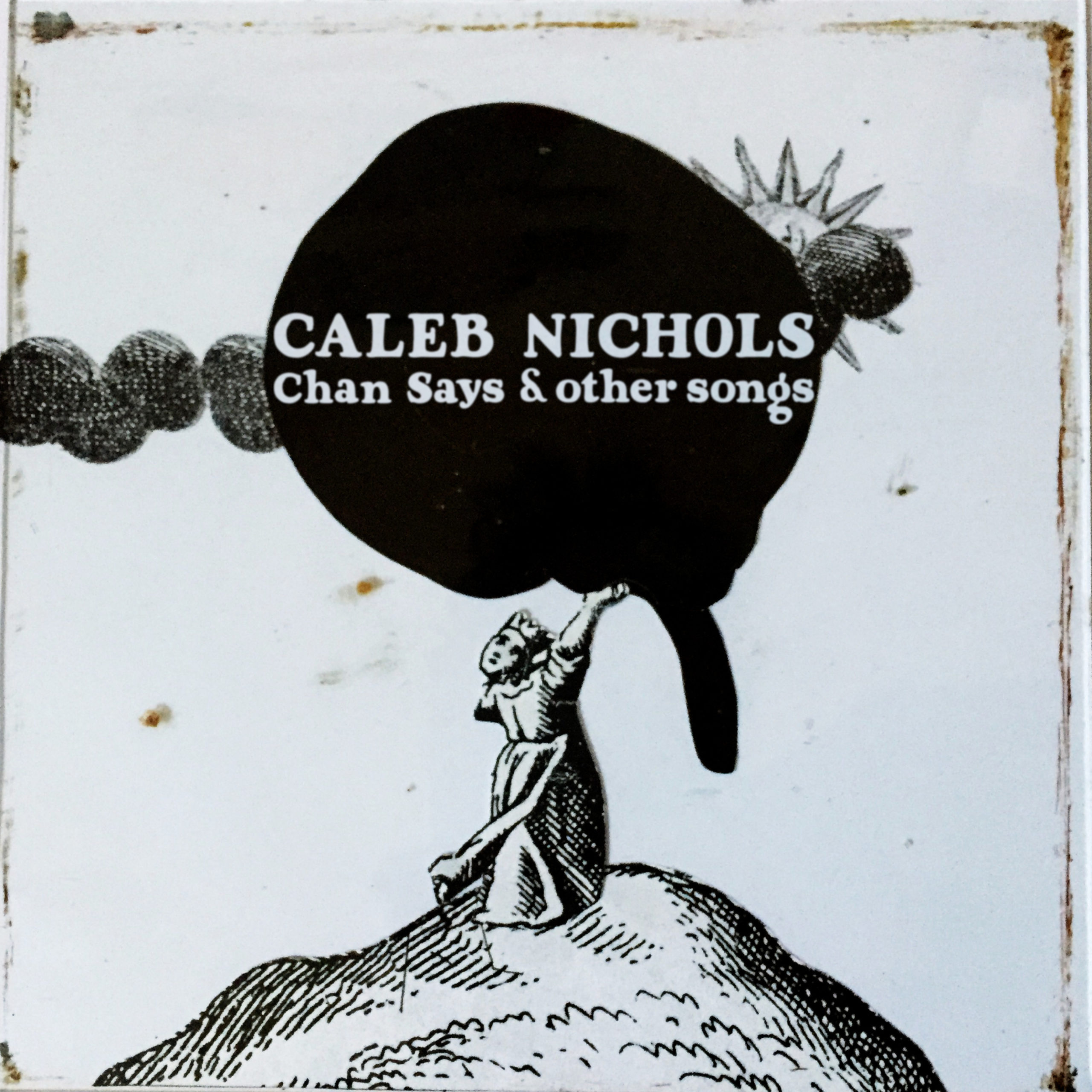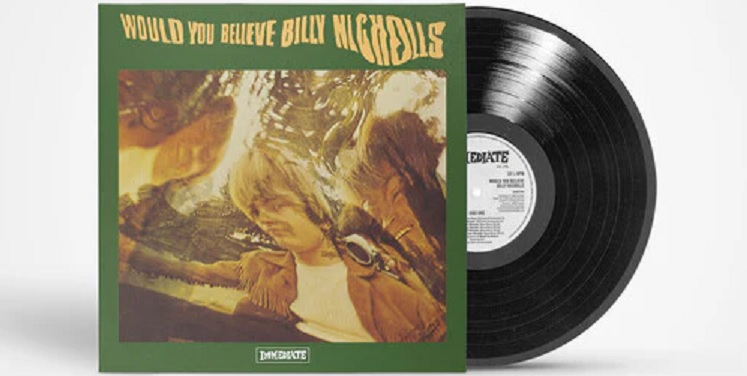Chan Says & Other Songs by Caleb Nichols–EP Review
Chan Says & Other Songs by Caleb Nichols–EP Review
“Stop scrolling.”
It’s a striking way to open anything—a poem, a song, a conversation. To announce oneself while simultaneously demanding something of the listener. And to presume that, perhaps, you weren’t being heard, to begin with. In an age of divided attention, of media overstimulation, a creator’s plea for pausal mindfulness, is understandable, as is the claim for space. In the United States’ current era of cultural divisiveness and anti-trans climatization, queer demands for space become louder than ever. On song/spoken-word EP Chan Says & Other Songs, Caleb Nichols, a non-binary singer and songwriter, explores themes of queerness, dissociation, individual identity, body dysmorphia, and metamorphosis.
In an age of divided attention, of media overstimulation, a creator’s plea for pausal mindfulness, is understandable, as is the claim for space.
“Stop scrolling/and consider how it feels/to be the lone black seed/in the cool wet sugar/of a seedless watermelon, to be where you aren’t meant to be but still so sweetly held in the ripe red center of things”. This is the EP’s thesis statement, the opening lines of Track 1 “Stop Scrolling”: a statement of what it feels like to belong and to be simultaneously hemmed in by the discomfort of interloper-hood. Listeners are required the labor of empathy and imagination, two things scarce in adulthood. Then Chan emerges: Chan, an unreliable narrator, minimized and stranded, transforms into the EP’s antagonist. (Chan is short for Chantal, what Caleb would’ve been named had they been born a girl.) Chan is not just an occasional narrator, dropping in so seamlessly that the line between Chan/Caleb is quickly blurred, but also the album’s focal point of change. Chan is “unrealization”, something that could’ve happened but didn’t, yet never quite went away, Chan is queer transformation and metamorphosis of the self. The EP’s first (of only two) traditional song, “Chan Says”, is an upbeat, bass-driven pop-folk number, festooned with jangling percussion and sunshiney rhythmic clapping. Liveliness obscures darker lyrics beneath: “Chan says give her a chance to breathe…Chan says she’s innocent but not free…”. (If it sounds like a darkly bright take on “Simon Says”, Track 8, “Chan Divines Our Future With Her Magic 8 Ball” later brings the point home.)
Chan Says delves into lush, mythological aesthetics. On “Wicked (Chan’s Edit)”, cockle shells and impure thoughts supplement emotional voids; tarot cards and minotaurs attempt and fail, too. Nature rises to meet psychological needs. Psychedelic alterations plague the narrator frequently; sandwiches assume psilocybic influence, a “shroom space between hysterics and horror”, and Chan is found “laid out in the gutter” of Nichols’ “corpus callosum”. Liminality, an occupancy of borderlands, appears frequently on Chan Says—the corpus callosum is the nerve fibers that connect the two hemispheres of the human brain. To lie between them is to be without a home, to be neither or both, to be everything everywhere all at once, a lone black seed in the cool wet sugar of a seedless watermelon.
Psychedelic alterations plague the narrator frequently; sandwiches assume psilocybic influence, a “shroom space between hysterics and horror”.
Only “Chan Says” and “Wicked” are traditional songs; the remaining tracks are spoken-word, occasionally accompanied by background music. “Chan Eats Her Chrysalis” is a powerful chronicle of sexuality. “Honeybees”, “moonboots”, and “cloud castles” are objects of remembrance in Nichols’, “fulcral feature of childhood”, where sound itself frustrates, as do boys in locker rooms (in a different way). And the chrysalis is a crucible of identities discovered and left behind. As Chan emerges from it, so does Nichols’ conscious sexuality, in raw emotive declarations. Struggles of body image emerge, too, and Chan begins to reveal her darker side. “Chan Meets the Sea Witch”, Track 6, which opens with an Oscar Wilde quote, is a susurrating, sea-side poem of sensuality, power, and longing, and on “Chan Burns Her Bridges”, Chan herself takes center stage in an admission of failed relationships, no longer in the gutter of the mind, but now an individual with intention and malice.
Photo by Deborah Denker
“Chan Divines Our Future With Her Magic 8 Ball” is the album’s crux. Initial 8-Ball standards, such as “Chan Says Ask Again Later” turn bizarre (“Chan says ha ha ha”) to macabre (“Chan says she wants another cigarette…Chan says it’s probably an aneurysm”). It is as if we, the listeners, have delved into the dangers of emboldening the subconscious, the unrealized: Chan devolves into berating criticism and intrusive thoughts which capitalize on Nichols’ struggles. Chan’s liturgy expands into silence, punctuated by an occasional crooked piano note. Nichols’ and Chan’s melding is perhaps the album’s most complex element, and most puzzling is Chan’s transformation of character—experiences applicable to everyone (self-doubt, isolation, childhood, desire) are rendered deeply personal and vulnerable by Nichols’ poetry. Chan Says is a hypnotic and opulent exploration of identity, queer experiences, and complexities of the self.
Chan Says & Other Songs is an EP from Caleb Nichols released on March 31st by the Kill Rock Stars label.
Gallery
Recent Articles
Vinyl Relics: Would You Believe with Billy Nicholls
•
February 1, 2026
Wormslayer by Kula Shaker: Album Review
•
January 29, 2026

Loading...
Vinyl Relics: Would You Believe with Billy Nicholls
- Farmer John
A Tale of Crescendo ~ Chapter 9: The Clash; Chapter 10: The Reckoning
- Bill Kurzenberger




